Nullification in Action Series
RESTORATION OF FUNDAMENTAL CULTURAL KNOWLEDGE – THE RIGHT TO CONTRACT
Is it legal for the state to demand you get a business license? The short answer is no, they cannot make it a requirement according to the limits placed on them by both the national and state constitutions, even though you may choose to voluntarily get a license if you desire.
You should be running your small private school or bakery or handyman service or neighborhood club without government interference. Because any group of private individuals has the right to contract with each other.
Legally, registration can only be a voluntary request from the state AT BEST. Your decision to register or get licensed is not completely black and white though. It’s important for the public to be educated on this concept and how it may or may not apply. We hope you’ll learn some correct principles from this article and be able to counsel with whom you choose to make better decisions for both your economic and personal freedoms.
STATE OF UTAH WEBSITE SAYS YOU NEED TO REGISTER
The state of Utah publishes a website where they claim you are “required” to register your business. The following screenshot is from a previous version of the state’s business registration website:
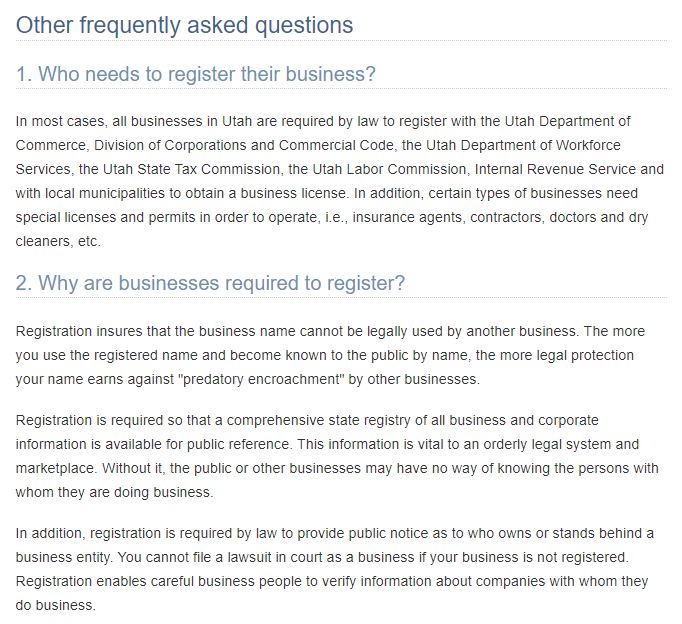
The state’s website is partially true, but highly misleading. Yes, if one chooses to register, they may do so voluntarily, and obtain the benefits of working with those who desire to see your business registration or license and any advantage they see from this relationship with the state. Banks may give you a hard time if you’re not registered in most situations. For this reason some may choose to register their name, but not engage in getting a license.
Registration vs. License?
Arguably, registering your business name isn’t a violation of your rights, if the state’s purpose is to protect your property and THAT’S ALL (although it must still be optional). Many people may choose to simply “register” their business name with the state for the purposes of publicly recording their name to protect their name, but then avoid getting a “license” to actually engage in business. Getting a license is an admission that you believe the state has the right to deny you your right to contract with your customers. State, county or city requirements to get “licenses” are completely unconstitutional (which we’ll discuss below).
But even “registering” your name with the state is not necessarily required as the state’s own words above admit that “the more you use the … name and become known to the public by name, the more legal protection your name earns.” The legal protection from the actions of publishing and using your name are based on the natural law principle of “claim, use, defend.” Claiming and using a name already gives you legal standing to protect your name. You only need to provide evidence that you’ve been using the name. The strength of your right to defend your claim to that name in court increases with the more evidence you have that you use the name frequently and for the longest length of time. The state’s words try to imply that registering your business name is a requirement in order for this natural law principle to have legal standing, which is false.
THE CONSTITUTIONS ARE ON YOUR SIDE
The Utah state constitution protects the right of private property as supreme (Article 1.1), and the right to use that property in contractual relationships that the state of Utah is specifically forbidden from impairing (interfering with) (Article 1.18) when you use that property or your time.
And with that right to contract, the state of Utah is prohibited from interfering with a free market transaction between two parties. (Article 12.20)
It is common for state employees who simply embrace tradition and don’t know better to not understand these rights under the law, and not properly explain these rights to us. (What “regular guy” reads the state constitution?) So now, you all know.
State Constitutional Restrictions on Laws Interfering with Contracts
“All persons have the inherent and inalienable right… to acquire, possess and protect property“
“No… law impairing the obligation of contracts shall be passed.“
What does a law impairing the obligation of contracts mean? The basic definition in Webster’s 1828 dictionary says it’s “the binding power of a contract”. The constitution is stating that it’s illegal for the government to interfere with the power that binds two private parties together. We’ll cover that in full as you read on.
“It is the policy of the state of Utah that a free market system shall govern trade and commerce in this state to promote the dispersion of economic and political power”
“Each contract, combination in the form of trust or otherwise, or conspiracy in restraint of trade or commerce is prohibited.”
Federal Restrictions by the Constitution on the States
Additionally, Section 10 of the US constitution gives a list of prohibition on states. Here the federal constitution specifically prohibits states also from interfering with contracts in Article 1 Section 10 Clause 1
“No State shall… pass any… law impairing the Obligation of Contracts”
This means the federal government has the constitutional power to force any state to not pass laws that interfere or “get in the way” of (impair) two parties that have a contract with each other to fulfill their side of that contract (to meet the obligation of that contract).
So the state of Utah must forever maintain this protection on private contracts in order to be a state in the union. It would be illegal for Utah’s constitution to not say this, or to ever be changed to say anything less.
How did the founders, who wrote the constitution, talk about this restriction on laws impairing the obligation of contracts?
The language in the various constitutions is clear, however modern media outlets and many government websites like to twist what this means by giving you their opinion, on top of what the constitutions actually say. So let’s look at the founders’ own words on this subject. I will break down the relevant parts of the federalist papers text, with links to full text provided.
James Madison discussed the need to empower the national government with requiring states to adopt this position.
He explained the constitution gave
“the federal authority [for the] restrictions on the authority of the several States.”
and that
“laws impairing the obligation of contracts, are contrary to the first principles of the social compact, and to every principle of sound legislation.“
Madison points out that the existing state constitutions already prohibited their legislatures from passing laws impairing the obligation of contracts, when he said they were “prohibited by the spirit and scope of these fundamental charters.” But that even though the states were already doing the right thing “that additional fences against these dangers ought not to be omitted,” therefore the federal constitution was explicit in forcing this…. “the convention added this constitutional bulwark in favor of personal security and private rights.”
This is a beautiful, and clearly defined, protection of private contracts, property and personal security for individuals in the union.
Madison also explains that the need for this restriction of private regulation comes from real experience:
“The sober people of America… have seen with regret and indignation that legislative interferences (with contracts)” … “affect personal rights.”
And once you allow one interference, it always leads to the next interference:
“that one legislative interference is but the first link of a long chain of repetitions, every subsequent interference being naturally produced by the effects of the preceding.“
By banning the interference of private contracts, they:
“very rightly infer, therefore, that some thorough reform is wanting, which will… inspire a general prudence and industry, and give a regular course to the business of society.“
We learn here, that America’s economic power originally was founded upon this very concept. Leaving the free market alone is the most healthy thing any government can do for the economic well being of the nation.
Alexander Hamilton discussed establishing peace between the States, and said “Laws in violation of private contracts” will “amount to aggressions on the rights of those States whose citizens are injured by them” and “may be considered a probable source of hostility.”
He saw the need to not interfere with private contracts as fundamental to peace internally within the nation.
WHEN LAWS CONFLICT, HIERARCHY DECIDES THE WINNER
You’ve been shown that the constitutional laws of the state and nation are clearly in direct opposition to what you’ll be told by city, county and state officials—either verbally, on their various websites or in rules or ordinances.
When laws or edicts conflict, it’s logically impossible to follow both of them at the same time. So the hierarchy of law decides which law takes precedent, invalidating the lower law. If any law or ordinance or rule “impairs” you from engaging in your private contract, it is violating multiple layers of constitutional law. Therefore, the government is breaking the law.
This hierarchy of laws is true for all laws made in compliance (in pursuance thereof) with the enumerated powers of the US constitution (This is known as the supremacy clause). The law to protect private contracts is enumerated, because it’s part of Article 1 Section 10. For anything not mentioned in the constitution, the powers of the states or people are supreme over the federal government (as clarified in the 10th amendment).
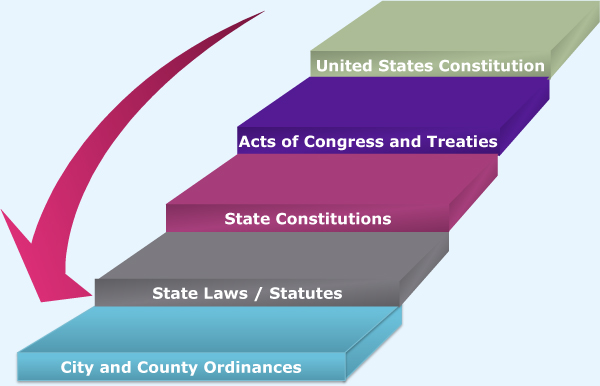
CONCLUSION AND ACTION ITEMS
So in summary, the founders’ purpose of not interfering with private contracts, is to protect the personal rights of individuals and private businesses and inspire a healthy economy that is left alone by the government. Every principle of sound legislation must support this.
It is clearly written into our law, that the government absolutely must leave you alone when you conduct business with another party. Every law, statute, rule, etc. which interferes with your right to make a deal with somebody else, is flat out illegal. The government is breaking the law.
Are there exceptions to this rule? It’s certainly always true that context of a specific situation could create “edge cases” where this whole discussion doesn’t apply. But these would be few and far between, and would not fall under the 99% majority of situations. You also need to be careful with anything the city, county, or state asks you to sign. You may have voluntarily waived your rights under a private contract with the state. You can always revoke your consent to something you have signed and terminate your contractual relationship you entered into in ignorance or under duress, and restate your intent to not waive any of your rights.
We have allowed this interference (the state to impair our obligation of our contracts) in our personal affairs to become a daily situation. It is only you as an individual and a business owner, demanding your rights, that can be the final check-and-balance on government overreach.
In fact, the 10th amendment to the constitution was the crowning jewel of the bill of rights which puts onto paper your existing right to push back and claim your constitutional rights. This right is known as nullification. The State of Utah could nullify/push back against when the federal government does this, your local governments and sheriff can push back against when the state does this, and your sheriff or you personally can push back against when any level of government does this to you. You should demand your rights under the constitution from any level of government.
Join with Defending Utah as an activist member and become an educated activist in your area or sign up for Defending Utah’s email list. Consider registering yourself or your business with the Utah Central Committee and receive localized updates and alerts for opportunities in your area.
Precedent for Nullification
How would you apply this as a business? In theory, simply a verbal arrangement with customers that come into your business is a verbal contract to purchase something, and that’s all there is to it. You must verbally claim your position this way if necessary. However, some business that are more traditionally regulated by the government have historically taken more explicit measures to engage in nullification (whether they knew it was called that or not). From 1969 through 2009 in Utah, it was illegal to sell alcohol to the public (only the approved government run liquor stores could sell alcohol to the public). Utah restaurants, bars and nightclubs that sold alcohol to the public had their customers sign up for a private membership at the door. They then became a “member” of their private business club with a private contract between the customer and the business. This action put Utah Bars clearly behind the reach of the legislature due to constitutional limitations. If a business as highly regulated as alcohol can pull it off with some simple organized measures, your business clearly has fewer hurdles to jump over, if any at all.
Bigger Company? Attorney Resources.
If you have a bigger company, and you want to stand on your rights but you feel you just have to play with “the system,” you might feel more comfortable having your attorney do the fighting for you. Here’s a big list of case law and USC references that your attorney can use to get started in addition to the more correct constitutional arguments already shown which really trump all this case law anyway.
Nothing in this article is legal advice. Have your attorney investigate further.
CASE LAW: Hale v. Hinkle, 201 U.S. 43: U. S. v Dickerson 4131* 20 116; Hill v. Philpott, 445 F2nd 144, 146; Stuart v. U.S. 416 F2nd 450; U.S. v. Klackner, 273 F Supp 25I.: Mattos v. U. S., 158 U.S. 237 at 243.; U.S. v. Wong Kim Ark. 169, 18 S. Ct. 456; State v. Simmons, 2 Spears 761, 767 (1884) Justice 0’Neil.; Taylor v. Porter, 4 Hill 140, I46(1843) Justice Bronson,; Marbury v. Madison, 2 Cranch (5U.S.) 137, 176. 177 l803).; Fred Scott v. Sanford, I9 How. 393.: Reid v. Convert 354 U.S. l(1957), 1 I, Ed. 2′”‘, 1l48.; Miranda v. Ariz. 384 U.S. 436 at 491 (1966). USC 5 sec. 301 533 Note 3, 556, 566(d), 558(b).; USC 28 sec. 20?2 at clause 2.; Standard v. Olsen, 74 S. Ct. 768. 48 Arm.Jur 2nd Sec. 2 at pg SO.; Coppage v. Kansas, 236 U.S. 1, at I4.; Elliot v. Freeman 20 U.S. 178 (1911); Butchers Union Co. v. Crescent City Co.; Smith v. Morse, 2 CA 524.; Cooper v. Aaron, 358 U.S. I.
Possible fine print for use in private contracts:
NOTICE: Any person, Federal or State Administrative Agent(s), Law Enforcement Officer[s}, Legislator(s), Judicial Officer(s), who by omission or under color of law impair or abridge any or all of the terms, conditions or obligations of this Agreement and Contract or impair the actions of the Contracted Parties named herein or their successors, while in the performance of their duties stated herein Under USC 8 Sec. 241 &. 242 shall be subject to Criminal Penalties, as well as Civil penalty under USC 42 Sec. 1983, 1985, 1986. SEE: Hafer v. Melo, No. 90-681, P. 400 (Nov. 1991)

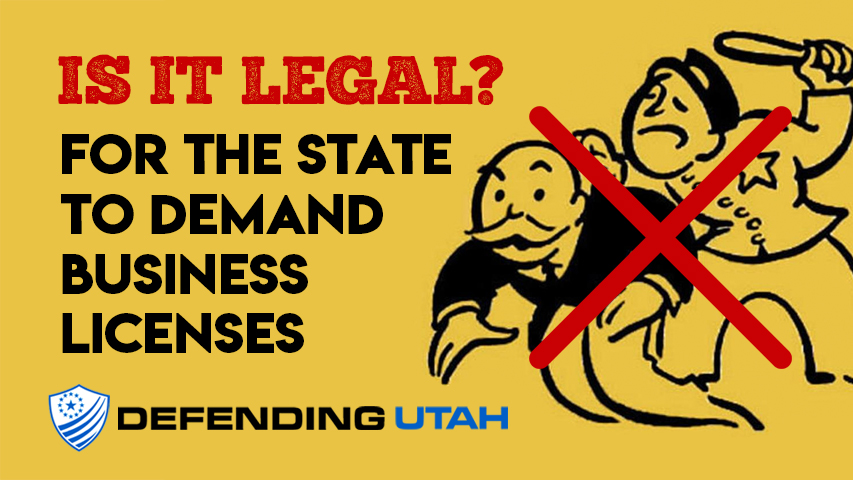


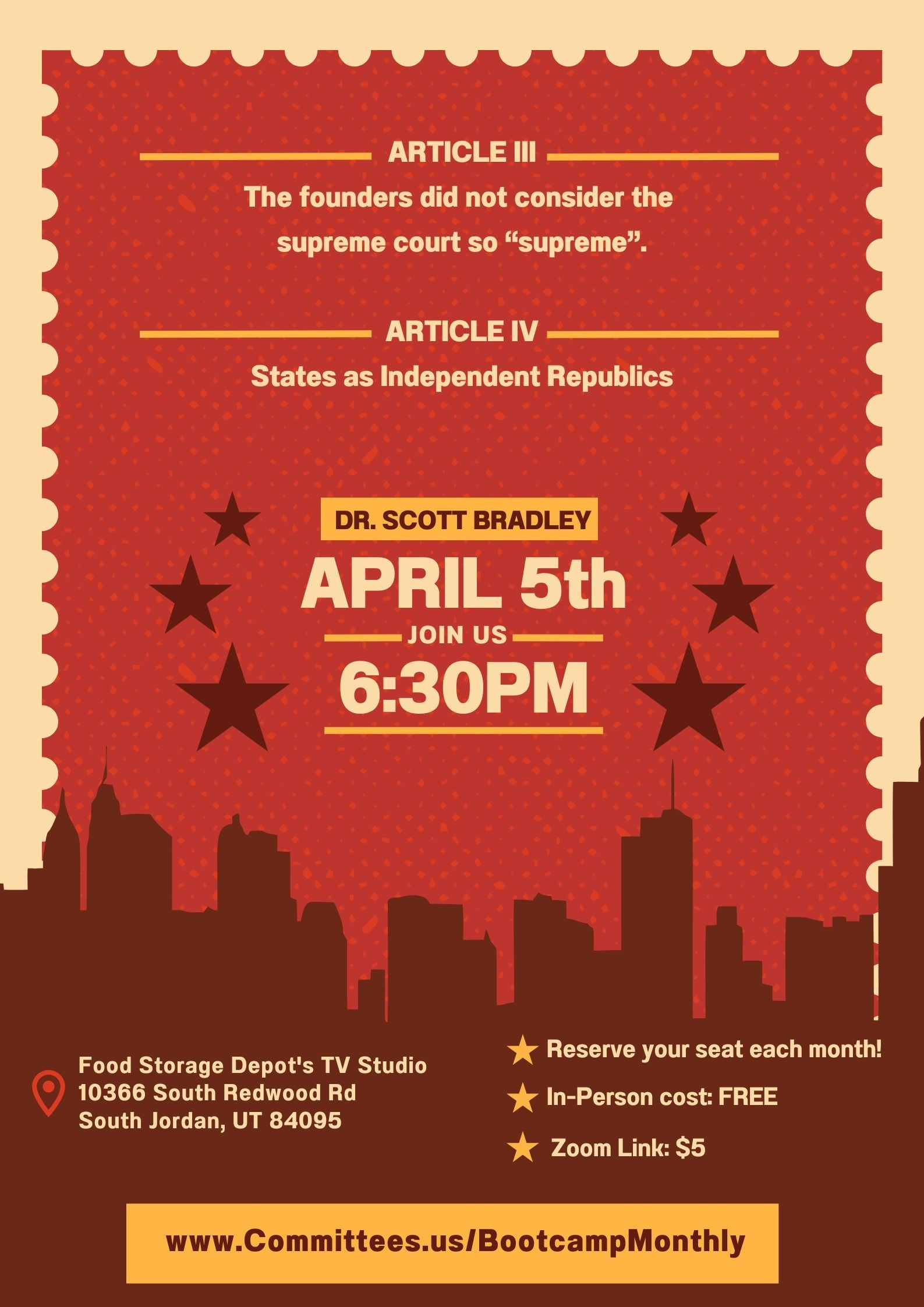
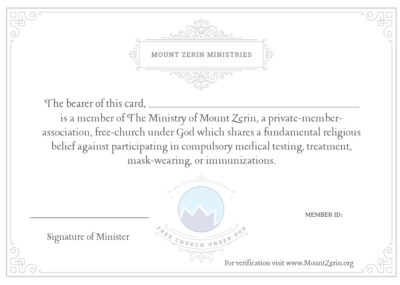
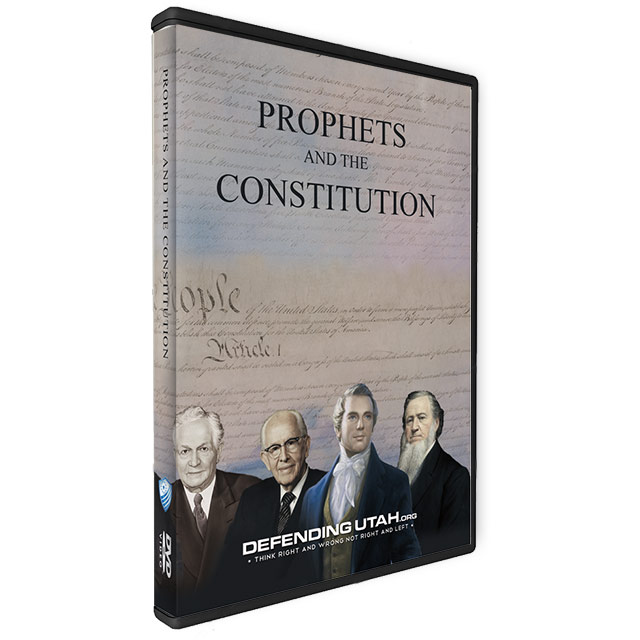


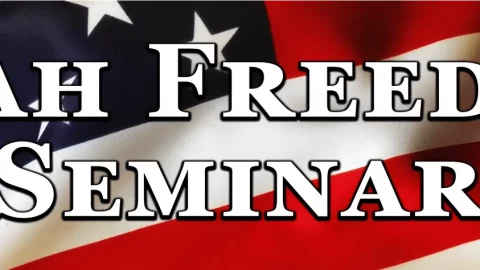

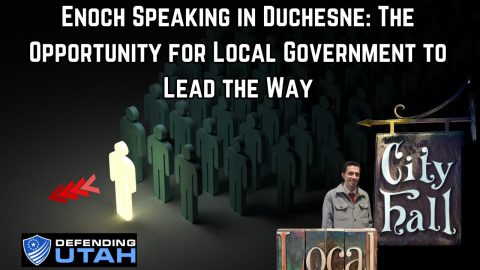

3 Responses
When government pretends to create laws, that they’re legally not allowed to create, they’re the ones engaging in anarchy. Do you believe the constitution is the law or not? Do you support the highest law of the land or not? The state is specifically forbidden from interfering with contracts. They are breaking the law. Do you believe the constitution is the law or not? Do you support the highest law of the land or not? Do you support when a criminal organization pretends to be the government and forces you to bow to their gang? That’s exactly what you’re saying.
The Utah county jail requires a person to sign a form to allow them permission to administer a tuberculosis jab. If you don’t, then you can’t be processed quickly for a release you have to be put into the can til they get around to releasing you. So if you sign the release to get the job, you don’t have to go into jail, but if you don’t sign the release, then they put you in jail where, according to them, there’s a tuberculosis problem. That makes a lot of sense!
Would love some clear documentation or evidence of this if you have it.